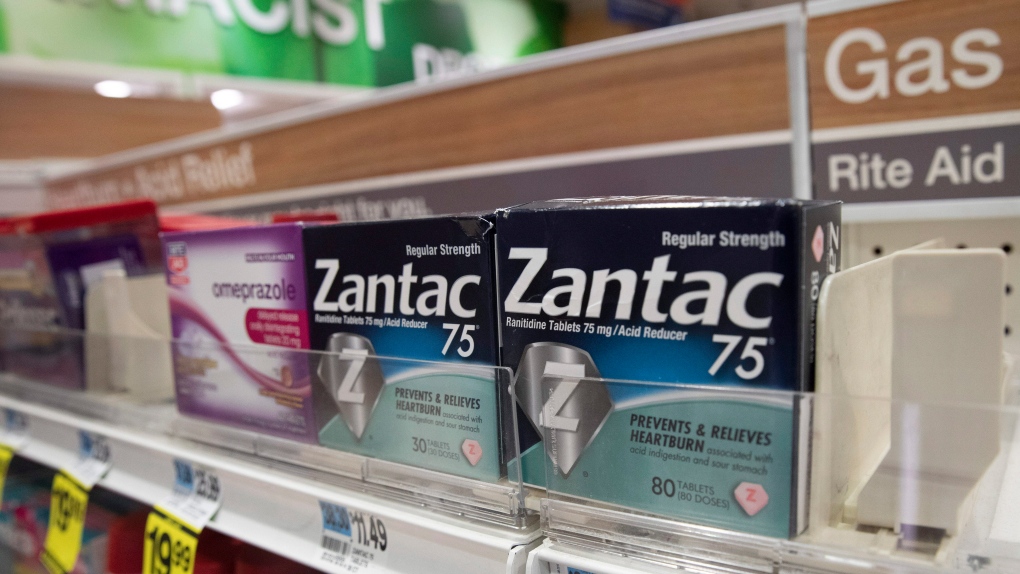A Delaware Superior Court judge has denied drugmakers’ request to dismiss over 70,000 lawsuits claiming that Zantac, a widely used heartburn medication, caused cancer in users. This ruling allows the lawsuits to move forward, which could potentially lead to trials and compensation for the affected individuals.
Consumers Affected: The lawsuits involved individuals who used Zantac and were later diagnosed with various types of cancer, including breast, bladder, uterine, prostate, liver, gastric, colorectal, and infant testicular cancers.
Reason for Lawsuit: The plaintiffs allege that the drugmakers were aware of the cancer risks associated with Zantac’s active ingredient, ranitidine, but did not adequately warn consumers and continued to profit from the medication.
Court Proceedings: The cases have been consolidated into a multi-district litigation (MDL) in the Delaware Superior Court.

A Delaware Superior Court judge has denied the appeal by drugmakers to dismiss over 70,000 lawsuits related to the heartburn medication Zantac. The plaintiffs claim that the drug caused cancer in users, and this decision allows the litigation to proceed, potentially leading to trials.
In the latest development, Judge Vivian Medinilla ruled that the lawsuits, which allege that taking Zantac increases the risk of certain cancers, can continue with the inclusion of expert witness testimony—a critical element for the plaintiffs’ cases. If the Delaware state high court upholds her decision, the plaintiffs may finally head to trial.
“Judge Medinilla resoundingly rejected GSK, Boehringer Ingelheim, Pfizer, and Sanofi’s attempt to circumvent the jury system in Delaware,” stated Jennifer Moore, a lawyer representing the plaintiffs.
If you or a loved one were diagnosed with cancer after using Zantac or ranitidine, you may be eligible for a FREE case review. Please fill out the form on this page for more information.
Background on Zantac and the Surge in Lawsuits
Zantac, developed in 1981 and approved in 1983, became a leading medication for heartburn and ulcers. Initially available by prescription, its popularity led to over-the-counter availability, making it widely accessible.
However, after nearly four decades on the market, concerns arose over the presence of NDMA, a cancer-causing chemical in Zantac’s active ingredient, ranitidine. Studies have linked NDMA to several cancers, including breast, bladder, uterine, prostate, liver, gastric, colorectal, and infant testicular cancer.
This led to voluntary recalls in 2019 and the FDA’s complete withdrawal of Zantac from the market in 2020.
Allegations Against Drugmakers: Ethical and Legal Concerns
Following the FDA’s action, numerous lawsuits emerged, alleging that drugmakers like GSK and others were aware of the cancer risks but failed to warn consumers, prioritizing profits over safety. These cases, consolidated into multi-district litigation (MDL) in Delaware and other courts, continue to grow.
Earlier this month, new lawsuits were filed by plaintiffs suffering from colorectal/colon cancer, prostate cancer, and breast cancer, among other conditions, against manufacturers including GlaxoSmithKline, Pfizer, Boehringer Ingelheim, Sanofi, and Patheon.
For a FREE claim review from a Zantac lawyer, please click here.
Drugmakers vs. Plaintiffs: The Ongoing Legal Battle
In June, Judge Medinilla ruled that expert testimony could be used in the Zantac cancer lawsuits, which is crucial for the plaintiffs’ cases. The drugmakers appealed this decision, but the appeal was rejected by Medinilla.
GSK stated that “the scientific consensus remains that there is no consistent or reliable evidence that ranitidine increases the risk of any cancer.” The company argued that Medinilla should have followed a federal judge’s precedent in Florida, who in 2022 barred expert testimony in a similar MDL case. The U.S. Chamber of Commerce and other industry groups also supported this appeal, expressing concerns that Medinilla’s decision could turn Delaware into “a hotbed of products-liability and mass-tort litigation.”
If you or someone you know took Zantac and developed cancer, you may be entitled to compensation. It’s important to explore your legal options and understand your rights in this matter.
For more information and a FREE case review, please fill out the form on this page.

